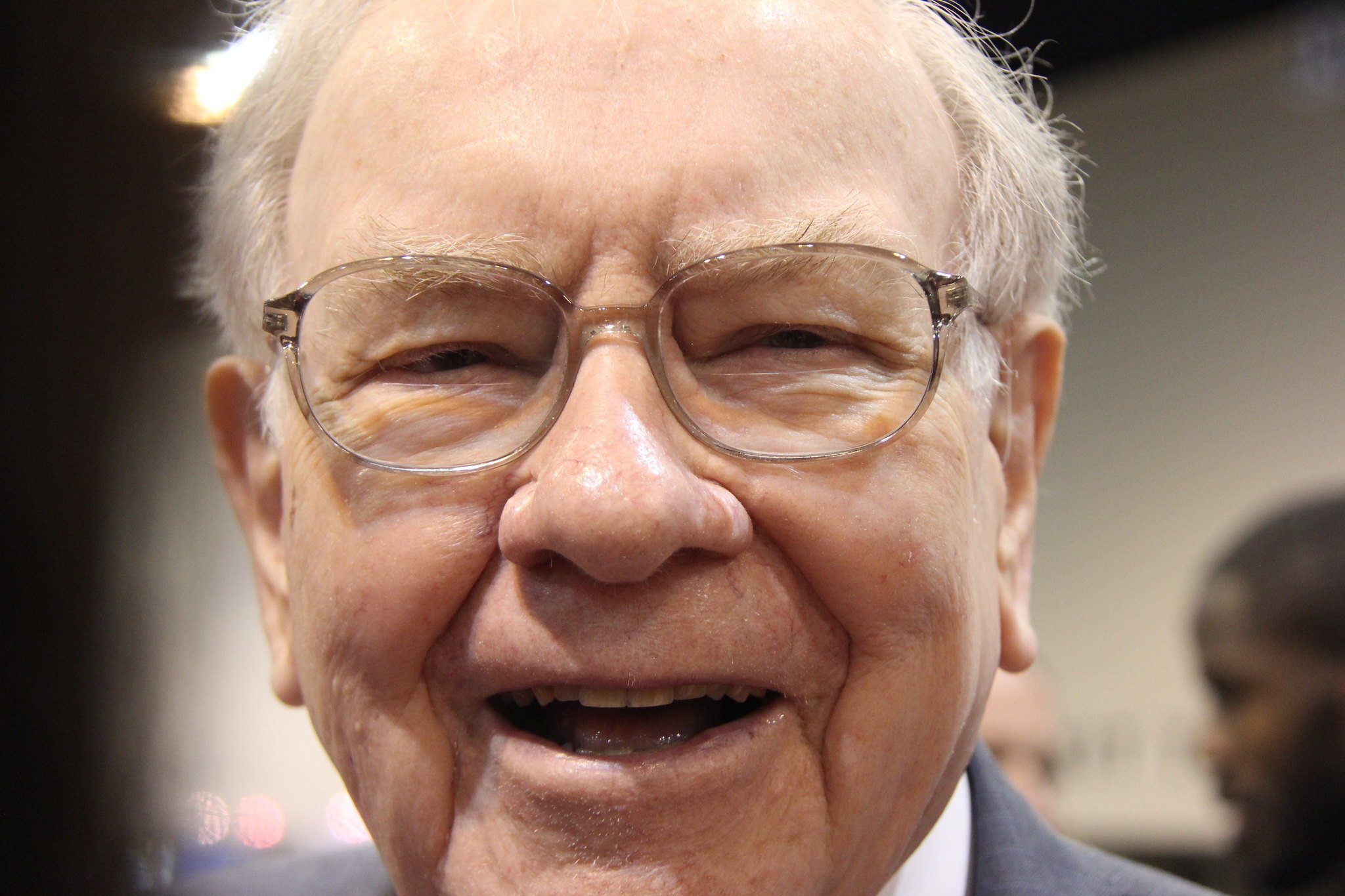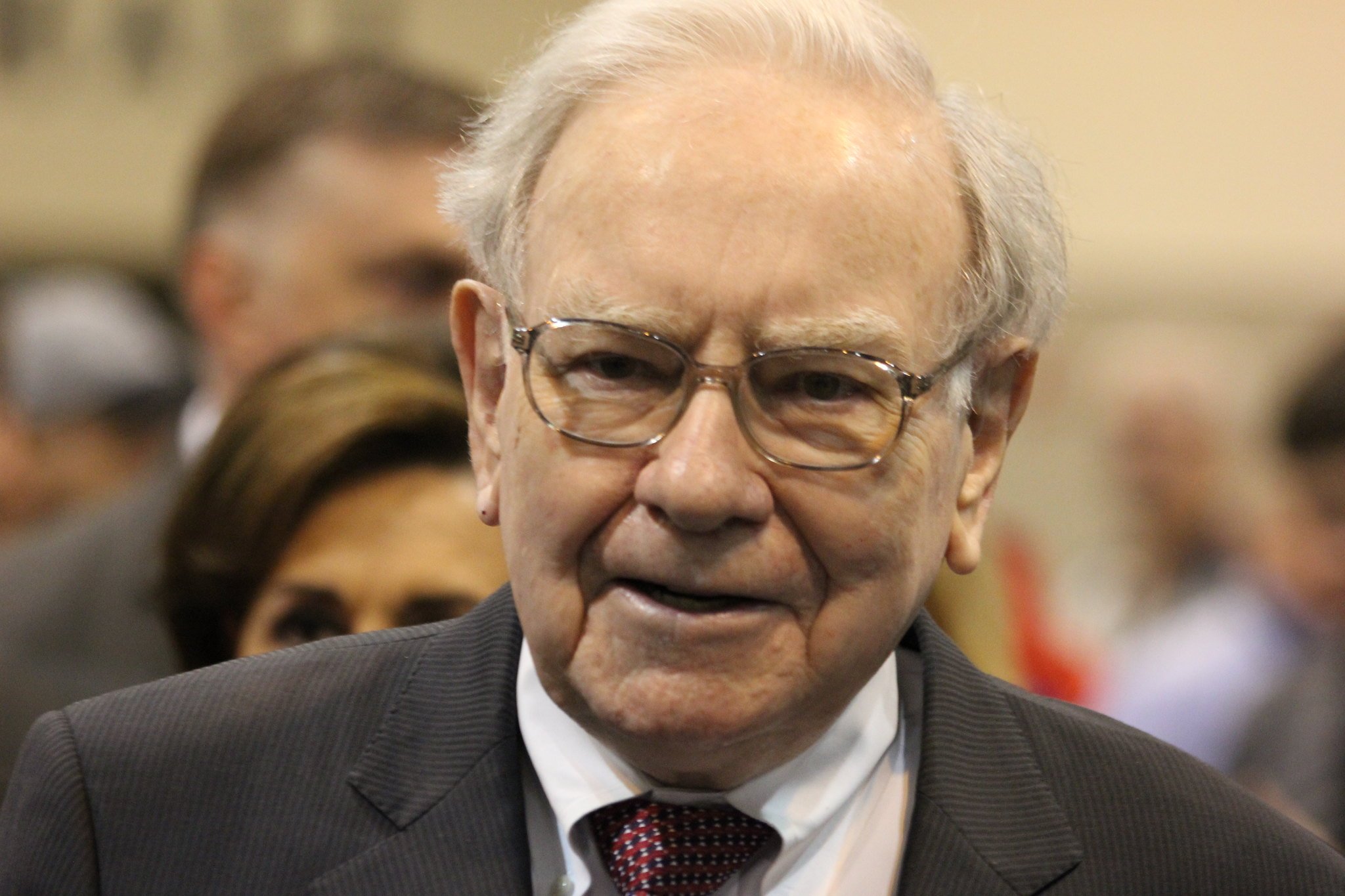Warren Buffett is widely regarded as the greatest investor of our time. Since he took the reins of Berkshire Hathaway (BRK.A +0.59%) (BRK.B +1.12%) in 1965, the nearly $900 billion multinational holding company's stock has achieved a compound annual growth rate of 19.8%. In comparison, the S&P 500 has posted a total annual return of 10.2% over the same period, suggesting he is worthy of the title.
Given Buffett's outsized success, prudent investors consistently monitor Berkshire's nearly $400 billion investment portfolio to see which stocks the Oracle of Omaha believes can beat the market. With that in mind, here are three stocks reflecting his enduring investment strategies that promise long-term growth for shareholders.
1. Amazon
While Berkshire's investment in Amazon (AMZN +0.47%) was made by one of Buffett's appointed portfolio managers and not by Buffett himself, the company embodies many of his philosophies of a winning stock.
One key metric Amazon excels in is operating earnings, a calculation of a company's direct profits from its core operations. Buffett prefers this metric when analyzing a company like Amazon because it excludes volatile unrealized capital gains and losses due to its investments.

NASDAQ: AMZN
Key Data Points
For Amazon's most recently reported quarter, the company generated a record $15.3 billion in operating earnings, representing an impressive year-over-year increase of 69%. Beyond its earnings growth, the balance sheet is in tremendous shape, with $27.4 billion in net cash (cash and cash equivalents minus total debt).
Despite the healthy cash position, Amazon doesn't offer dividends or regular share repurchases. As a result, its shares outstanding continue to rise incrementally due to stock-based compensation, with a 5% increase over the past five years. Warren Buffett prefers share repurchases at "value accretive" prices over share dilution because investors will lose ownership-stake percentage over time.
Instead of returning capital to shareholders, the company is investing heavily in artificial intelligence (AI), which is already showing up in its Amazon Web Services (AWS) division. Specifically, management projected a $100 billion annual revenue run rate for AWS in 2024, up from $90.8 billion in 2023.
As for Amazon's valuation, it appears expensive on the surface, trading at 43 times free cash flow. However, the stock is arguably underpriced when you consider that the company has always traded at an expensive valuation, with its 10-year median being 63 times free cash flow.
2. American Express
Berkshire initiated its position in American Express (AXP +1.15%) in 1991 and completed its $1.3 billion investment in 1995. The investment has paid off handsomely for Berkshire despite not reinvesting dividends or purchasing additional shares.
It is now worth $34.7 billion and will likely generate about $409 million in dividends this year alone. Moreover, Berkshire's ownership stake has grown from roughly 10% to 21% through share repurchases.

NYSE: AXP
Key Data Points
With returns like that and Berkshire's lack of further capital investment since 1995, investors are wise to scrutinize the stock's prospects, but American Express isn't slowing down. The banking and payments company reported impressive financial metrics for the first quarter of 2024, including $15.8 billion in total revenue and diluted earnings per share (EPS) of $3.33, representing a year-over-year increase of 11% and 39%, respectively.
Furthermore, management reaffirmed its confident outlook for the remainder of 2024, projecting revenue growth in the range of 9% to 11% and an increase in diluted EPS between 13% and 17%.
As previously alluded to, management prioritizes returning capital to shareholders through dividends and share repurchases. The company has regularly paid and increased its dividend since 1989, with a current quarterly payout of $0.70 per share, representing an annual yield of 1.2%.
And management has repurchased nearly 14% of the shares outstanding during the past five years, with authorization to buy back another estimated 95 million shares out of its current 719 million.
One area to watch for American Express is its growing provisions for credit losses -- a noncash expense for expected losses that will likely be unrecoverable -- as elevated interest rates continue to weigh on consumers. The metric is on the rise for American Express, hitting $1.3 billion for the first quarter, a year-over-year increase of 18%.
During the company's most recent earnings call, Chief Financial Officer Christophe Le Caillec said, "We expect to see these delinquency and write-off rates remain strong with some continued modest increase in 2024."
Despite macroeconomic headwinds, American Express's growth and capital allocation strategy favor long-term shareholders. This explains why Berkshire's ownership stake in American Express has doubled since 1995, and it has recouped its entire investment and then some through dividends.
3. Berkshire Hathaway
Often, the most successful investments are hiding in plain sight. So, for the last stock, consider Buffett's all-time favorite: Berkshire Hathaway.
Berkshire has a diverse portfolio, with majority stakes in more than 60 subsidiaries, including well-known brands like Geico and Dairy Queen. Together, these companies delivered operating earnings of $11.2 billion in the first quarter of 2024, representing a year-over-year increase of 39%.

NYSE: BRK.B
Key Data Points
With Berkshire's insurance business, the company receives premiums from its customers up front. This cash, known as the float, is available for investment until it is needed to pay out policyholders' claims. Consequently, Berkshire had $189 billion on hand at the end of the first quarter of 2024 for potential acquisitions or stock investments.
In the near term, Buffett appears content with holding the majority of Berkshire's cash in Treasury bills -- a short-term security backed by the U.S. Treasury Department with a maturity of one year or less -- because of their higher-than-average yields of 5% to 5.4%.
Although some investors might be critical of Buffett's strategy of sitting on a pile of cash, it sets the company up to benefit in the event of a financial downturn in the markets.
Buffett wrote on this topic in his most recent annual letter to shareholders: "During the 2008 panic, Berkshire generated cash from operations and did not rely in any manner on commercial paper, bank lines or debt markets. We did not predict the time of an economic paralysis but we were always prepared for one."
He then summed up his thoughts on his fiscally conservative approach: "Berkshire is built to last."
Are these Buffett stocks worth buying?
Given Warren Buffett's unparalleled track record, investors are wise to model their investing strategies and portfolios after him. These three very different stocks offer a combination of growth, consistent income, and a hedge against a market downturn, making each of these market-leading companies worthy of any portfolio.






